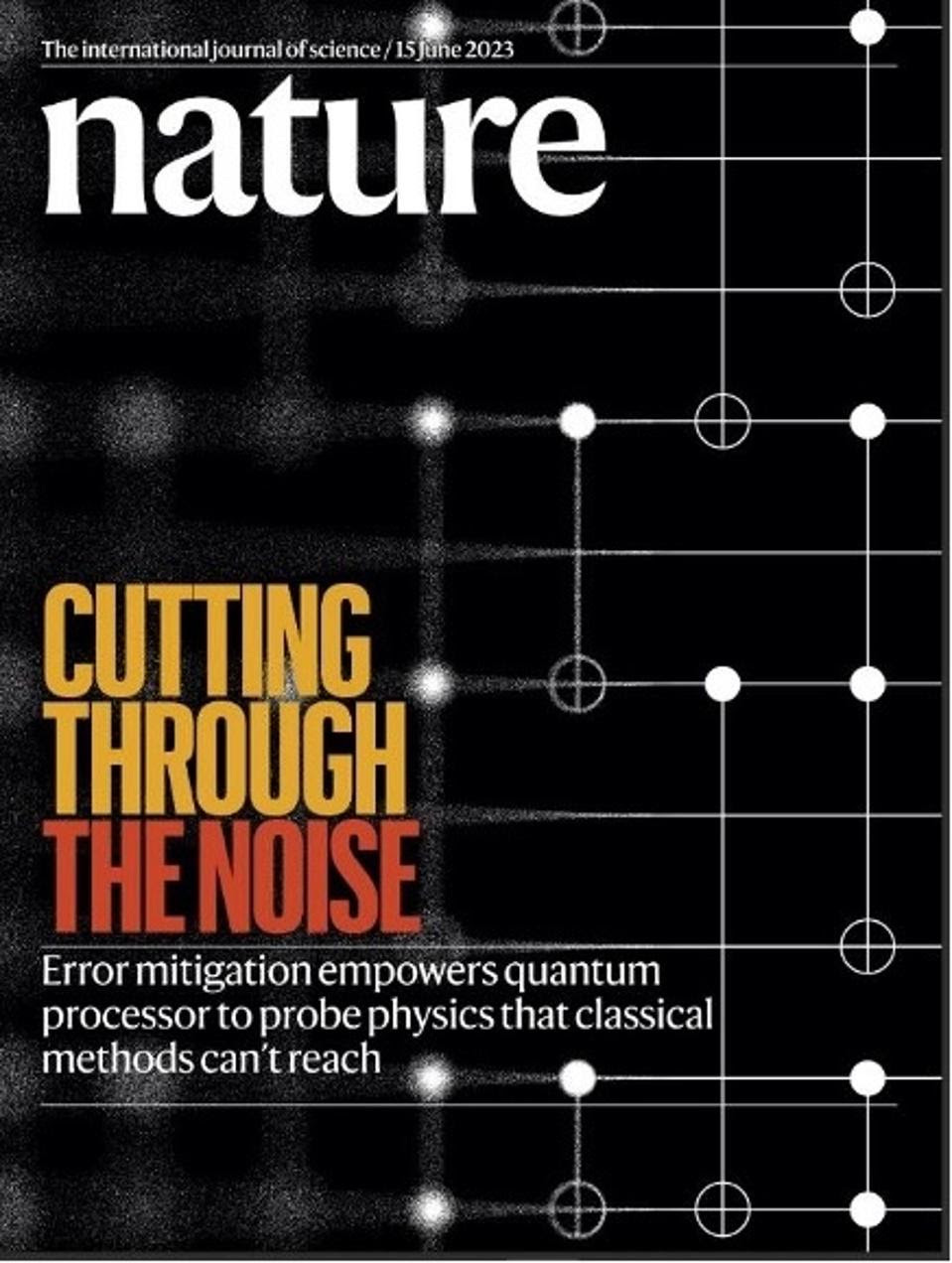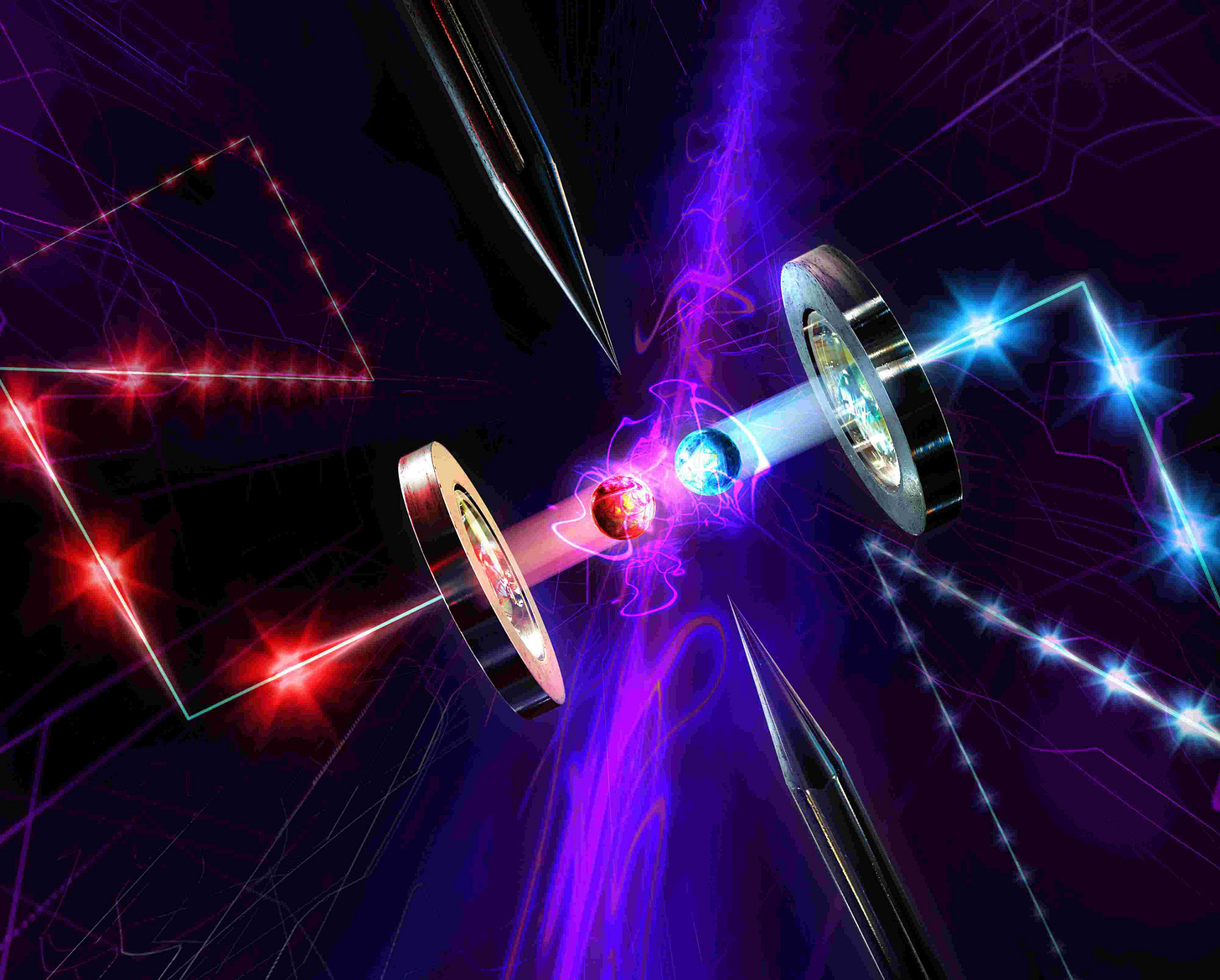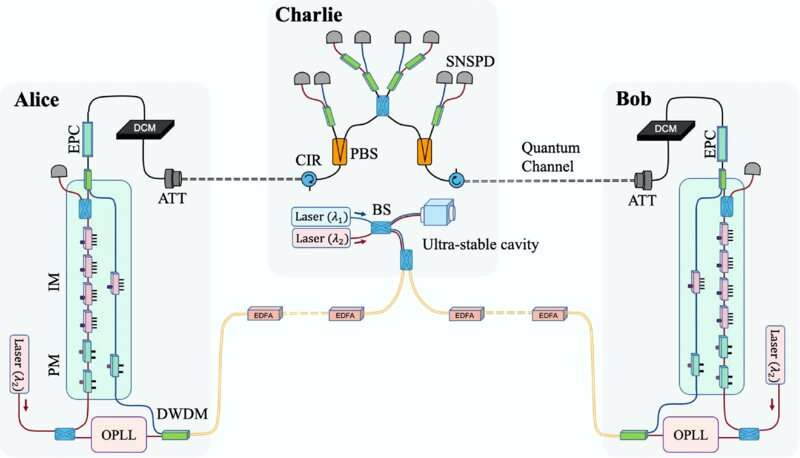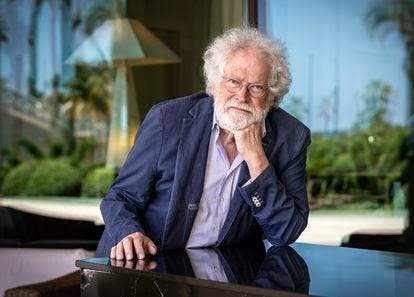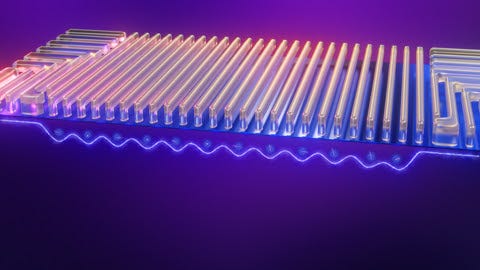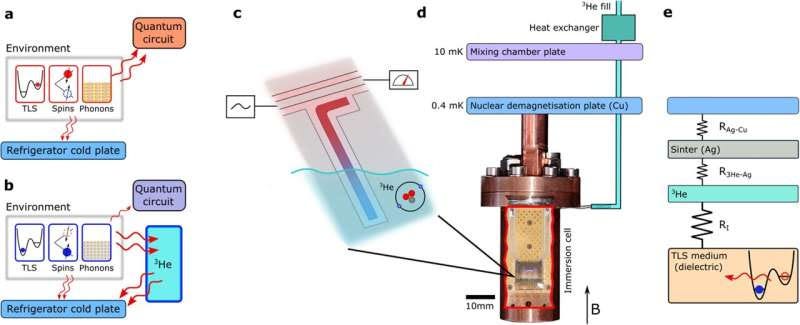The Week in Quantum Computing - June 19th
Issue #141
The Week in Quantum Computing. Brought to you by Sergio Gago (@piratecto).
Quick Recap
Ok. This was one of “those weeks” when everything happens at once. And clearly IBM has taken the spotlight with their publication on quantum usefulness. Basically IBM and UC Berkeley have demonstrated how to use 127 qubits (the eagle processor) to simulate a physical system and applying error mitigation in a way they observe better accuracy than the results from a super computer. But there are two things to consider here: 1) This is not a problem with real applicability except in some niche physics areas, and 2) What this demonstrates, much like the boson sampling cases from a few years ago, is that there are algorithm possibilities for future quantum usefulness (which is great!). Specifically in this case by applying error mitigation.
At the same time, we see advances on simulating the boson sampling problem with tensor networks. So of course new classical methods can overthrown this research anytime.
Intel has released their silicon spin device with 12 Qubits. This may not seem a lot but it is a very promising tech. So don’t get fooled by the size of the device. Meanwhile, some people raise concerns about the energy footprint of superconducting qubits, while a new tech for cooling is proposed (inmersing the qubit in liquid Helium). All this works hand in hand with a new research for PsiQuantum, reducing the computational requirements to break today’s cryptographic systems (elliptic curve based). But don’t worry, we still need A LOT of physical qubits. And while the Y2Q arrives, vendors are speeding up. AWS just released their Quantum Safe FTP service, so most of us will not need to do anything specific to be “Shor-Protected”.
A very interesting piece has been published on DW showcasing Chinese research and how it is tied to Germany funding Pan-Jian Wei’s research. In the meantime in Europe a group of researchers from Universities of Innsbruck in Austria and Paris-Saclay in France have been able to put together a quantum repeater that achieved 50km and demonstrated that 17 ion-based repeater nodes could establish entanglement between ions 800 kilometres apart.
The Week in Quantum Computing
Paper: Tensor network algorithm for simulating experimental Gaussian boson sampling
Gaussian boson sampling is a promising candidate for showing experimental quantum advantage. While there is evidence that noiseless Gaussian boson sampling is hard to efficiently simulate using a classical computer, the current Gaussian boson sampling experiments inevitably suffer from loss and other noise models. Despite a high photon loss rate and the presence of noise, they are currently claimed to be hard to classically simulate with the best-known classical algorithm. In this work, we present a classical tensor-network algorithm that simulates Gaussian boson sampling and whose complexity can be significantly reduced when the photon loss rate is high. By generalizing the existing thermal-state approximation algorithm of lossy Gaussian boson sampling, the proposed algorithm enables us to achieve increased accuracy as the running time of the algorithm scales, as opposed to the algorithm that samples from the thermal state, which can give only a fixed accuracy. The generalization allows us to assess the computational power of current lossy experiments even though their output state is not believed to be close to a thermal state. We then simulate the largest Gaussian boson sampling implemented in experiments so far. Much like the actual experiments, classically verifying this large-scale simulation is challenging. To do this, we first observe that in our smaller-scale simulations the total variation distance, cross-entropy, and two-point correlation benchmarks all coincide. Based on this observation, we demonstrate for large-scale experiments that our sampler matches the ground-truth two-point and higher-order correlation functions better than the experiment does, exhibiting evidence that our sampler can simulate the ground-truth distribution better than the experiment can.
Link: https://ift.tt/FGxzio4
June 12, 2023 at 12:30AM
Quantum repeater transmits entanglement over 50 kilometres – Physics World
Physicists at the Universities of Innsbruck in Austria and Paris-Saclay in France have combined all the key functionalities of a long-distance quantum network into a single system for the first time. In a proof-of-principle experiment, they used this system to transfer quantum information via a so-called repeater node over a distance of 50 kilometres – far enough to indicate that the building blocks of practical, large-scale quantum networks may soon be within reach.
Link: https://ift.tt/zIkAs1l
June 12, 2023 at 03:30PM
The Energy Footprint of Quantum Computing: Challenges and Solutions
One of the primary challenges in reducing the energy footprint of quantum computing lies in the cooling systems required to maintain the delicate qubits. Qubits must be kept at extremely low temperatures, close to absolute zero, to minimize the risk of errors caused by thermal fluctuations. This necessitates the use of sophisticated cooling systems, such as dilution refrigerators, which consume large amounts of energy. In fact, it is estimated that the cooling systems alone can account for up to 90% of the total energy consumption of a quantum computer.
Link: https://ift.tt/XakruJc
June 13, 2023 at 08:30AM
Global Quantum Computing Market Size To Grow USD 143.44 Billion By 2032 | CAGR of 26.5%
New York, United States , June 12, 2023 (GLOBE NEWSWIRE) -- The Global Quantum Computing Market Size is To Grow from USD 13.67 Billion in 2022 to USD 143.44 Billion by 2032, at a Compound Annual Growth Rate (CAGR) of 26.5% during the forecast period.
Link: https://ift.tt/UVDOkLp
June 13, 2023 at 08:30AM
New Device Detects Radiation at a Trillionth of The Usual Scale
A team of researchers has accurately measured power at a scale that's a trillion times smaller than what's possible with standard instruments. It means microwave radiation can be more precisely assessed in quantum physics experiments.
Link: https://ift.tt/7olCRzE
June 13, 2023 at 08:30AM
China's quantum leap — Made in Germany
Germany's oldest university hosts many scientists conducting groundbreaking work. Little did they know how they would become entangled in China's quantum military strategy. A DW investigation with CORRECTIV.
Link: https://ift.tt/zJ9s7mi
June 13, 2023 at 03:30PM
AWS Transfer Family announces quantum-safe key exchange for SFTP
AWS Transfer Family now supports quantum-safe public-key exchange for SFTP file transfers. Quantum-safe public-key exchange helps protect your file transfers from threats such as “harvest now, decrypt later“ attacks that record present day traffic for decrypting once cryptographically relevant quantum computers become available.
AWS Transfer Family offers fully managed support for SFTP, AS2, FTPS, and FTP enabling customers to run their managed file transfer (MFT) workflows on AWS. This launch introduces new hybrid post-quantum (PQ) security policies that enable quantum-safe key exchange between your SFTP servers and clients that use PQ encryption algorithms. When using a hybrid PQ policy, your SFTP server preserves the standard connection options supported by most clients today, while leveraging the most secure connection options with clients that support quantum-safe cryptography.
Link: https://ift.tt/7eGAroM
June 13, 2023 at 03:30PM
Scientists achieve 1000 km quantum key distribution
A point-to-point long-distance quantum key distribution (QKD) over a distance of 1,002 km has been achieved by scientists from the University of Science and Technology of China (USTC) of the Chinese Academy of Sciences (CAS), and their collaborators from Tsinghua University, Jinan Institute of Quantum Technology, and Shanghai Institute of Microsystem and Information Technology (SIMIT), CAS. This milestone not only sets a new world record for non-relay QKD but also provides a solution for high-speed intercity quantum communication. The results were published in Physical Review Letters on May 25th.
Link: https://ift.tt/Wif5JY9
June 14, 2023 at 02:30PM
IBMs Latest Research Paper Signals A New Era Of Quantum Computing Is Here
Quantum advantage, a key milestone in quantum computing, refers to the yet-to-be-achieved stage where a quantum computer can surpass the performance of a traditional computer. Essentially, it's all about the comparison of computational power between quantum and classical computers.
Link: https://ift.tt/lOfX3B0
June 15, 2023 at 03:31AM
Evidence for the utility of quantum computing before fault tolerance
Quantum computing promises to offer substantial speed-ups over its classical counterpart for certain problems. However, the greatest impediment to realizing its full potential is noise that is inherent to these systems. The widely accepted solution to this challenge is the implementation of fault-tolerant quantum circuits, which is out of reach for current processors. Here we report experiments on a noisy 127-qubit processor and demonstrate the measurement of accurate expectation values for circuit volumes at a scale beyond brute-force classical computation. We argue that this represents evidence for the utility of quantum computing in a pre-fault-tolerant era. These experimental results are enabled by advances in the coherence and calibration of a superconducting processor at this scale and the ability to characterize1 and controllably manipulate noise across such a large device. We establish the accuracy of the measured expectation values by comparing them with the output of exactly verifiable circuits. In the regime of strong entanglement, the quantum computer provides correct results for which leading classical approximations such as pure-state-based 1D (matrix product states, MPS) and 2D (isometric tensor network states, isoTNS) tensor network methods2,3 break down. These experiments demonstrate a foundational tool for the realization of near-term quantum applications4,5.
Link: https://ift.tt/T2GCbBp
June 15, 2023 at 01:31PM
Quantum Utility: How error mitigation makes quantum computers useful
Quantum computers have the potential to solve some of the world’s biggest problems, but they are limited by their extreme sensitivity to errors caused by environmental noise. New research from IBM Quantum and UC Berkeley shows that a family of computational techniques called quantum error mitigati
Link:
June 15, 2023 at 01:31PM
Nobel winner Anton Zeilinger: Physicists can make measurements but cannot say anything about the essence of reality
The Austrian scientist, a pioneer of quantum teleportation, reflects on God, the nature of things and the future of computing Common sense is useless in the world of the extremely tiny, where the rules of quantum mechanics apply.
Link: https://ift.tt/avg32Sz
June 15, 2023 at 01:31PM
EU approves more than 8bn for research and innovation projects
Ireland is one of 14 European Union member states to have contributed to the funding that is expected to create 8,700 jobs across the continent. The European Commission has approved €8.1bn in state aid to boost research and innovation in the areas of microelectronics and communication technologies.
Link: https://ift.tt/wN2We3K
June 15, 2023 at 02:30PM
QC Design Launches Plaquette: An All-Encompassing Quantum Error Correction and Fault-Tolerance Software Package
We are thrilled to introduce "plaquette" – an all-encompassing fault-tolerance software package developed by QC Design. Plaquette serves as a complete package for the study of quantum error correction and fault tolerance.
Link: https://ift.tt/WH3pQjA
June 15, 2023 at 02:30PM
Intels New Chip to Advance Silicon Spin Qubit Research for Quantum Computing
Intel makes new quantum chip available to university and federal research labs to grow the quantum computing research community. SANTA CLARA, Calif.--(BUSINESS WIRE)-- Today, Intel announced the release of its newest quantum research chip, Tunnel Falls, a 12-qubit silicon chip, and it is making the chip available to the quantum research community. In addition, Intel is collaborating with the Laboratory for Physical Sciences (LPS) at the University of Maryland, College Park’s Qubit Collaboratory (LQC), a national-level Quantum Information Sciences (QIS) Research Center, to advance quantum computing research.
Link: https://ift.tt/chCyTQx
June 16, 2023 at 05:30AM
PsiQuantum publishes paper projecting a 700x reduction in the computational resource requirements for breaking Elliptic Curve Cryptography using a fault tolerant quantum computer
PsiQuantum’s latest paper describes a more efficient method to break Elliptic Curve Cryptography (ECC) which is widely used for secure communications. This approach uses techniques especially applicable to photonic architectures, and reduces the number of gate operations required to break an ECC key by up to 80% as well as a 700x reduction in computation time relative to the state-of-the-art quantum algorithms.
Link: https://ift.tt/fPlUbBk
June 16, 2023 at 03:31PM
Guest Post: Michio Kakus book Quantum Supremacy neither supreme nor particularly quantum
Quantum computing enjoyed a relatively tranquil start to the year as generative artificial intelligence overshadowed quantum in technology media. Fundamentally, this was a good thing—getting out of the spotlight gives researchers and startups valuable time to focus, rather than spending time fighting misconceptions. Michio Kaku’s new book “Quantum Supremacy,” and the media tour to promote it, recycles multiple talking points long since debunked within the quantum community and introduces new claims that are equally, if not more, specious.
June 9, 2023
Link: https://ift.tt/SHs13J6
June 17, 2023 at 02:31AM
New cooling technology developed for quantum computing circuits
Typical superconducting quantum circuits, such as qubits—basic processing units of a quantum computer, must be operated at very low temperatures, of a few 10s of millikelvin, or hundredths of a degree from absolute zero temperature. These temperatures are today easily accessible in modern refrigerators. However, the intrinsic temperature of devices turns out to be much higher because the materials required to make good qubit circuits are by their nature very poor thermal conductors. This thermalization problem becomes more and more acute as the scale and complexity of circuits grow.
Link: https://ift.tt/3NryWjS
June 17, 2023 at 08:30PM
Quantum Computing in Russia: A journey towards a Quantum future
Russia is investing a huge sum of money in the development of quantum technologies. The governmental and industrial support to quantum research is driven by its goal to place itself in top contenders of advanced quantum technologies. Its significance is visible in the adoption of a five year Russian quantum technologies roadmap as part of the Digital Economy National Program in 2019. In its effort to build practical and working quantum technologies, the Russian government in 2020 allocated an investment of $790 million over the next five years. The investment shows that the Russian government is serious about quantum tech and its applications and is also a bid to revitalize and rebuild Russia’s Science programs with a new fervor.
Link: https://ift.tt/s0rObA9
June 17, 2023 at 08:30PM


